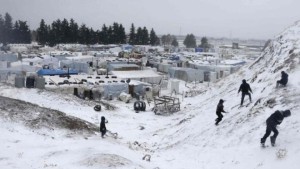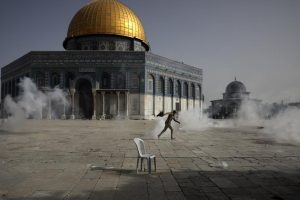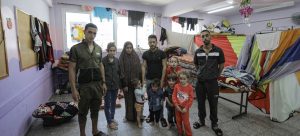S. Korean has sacrificed family, career and health to free his father, victim of a 1969 plane hijacking
My hometown, southern sea, I can see the blue water / How can I forget the calm sea in the village / Waterfowl would be flying, I want to go, I want to go / Miss buddies playing together / How can I forget them, wherever I go? / What are you doing today, I miss you, I miss you / Waterfowl, my buddies are still there /… let’s go back to the time without tear
This song, entitled “I Want to Return Home,” is what Hwang Won is said to have sang in his North Korean captivity.

His flight, Korean Air Lines (KAL) flight YS-11 from Gangneung, in South Korea’s Gangwon Province, to Seoul was hijacked on December 11, 1969.
The North Korean spy Cho Chang Hui carried out the hijacking, taking the plane to Wonsan, North Korea. The Pyongyang Broadcasting Station reported that the pilots of the fateful flight intended to fly the plane to the North, yet on February 14, 1970, North Korea repatriated 39 of the passengers, continuing to detain four flight staff and seven passengers. Hwang, a producer at South Korea’s Munhwa Broadcasting Corporation (MBC), is among the 11 South Koreans from the flight still detained in North Korea.
Hwang In-cheol, Hwang’s son, has for years fought for his father’s repatriation, demonstrating in front of the Ministry of Unification (MoU), reading academic articles about aviation law, speaking before the British Parliament and applying for the Red Cross meetings in North Korea for families split by the inter-Korean division.
Hwang said that his focus on finding his father has deprived him of regular employment. Currently, he is earning a living in construction as a day laborer, without having holidays even on Christmas.
As such, he met with NK News on one of the few days he didn’t have to work, one in which he visited the UN Human Rights Office in Seoul. Two years old at the time of his father’s abduction in 1969, he is himself the supporting three daughters even as his quest continues.
‘Looking at my adorable daughter, I could sympathize with my father, who lost his children’
In fact, it was the birth of his first daughter that motivated him to find his father in North Korea.
“In 2001, my daughter became 3 years old,” he said. “Looking at my adorable daughter, I could sympathize with my father, who lost his children. In the same year, I watched a live TV broadcast of the reunion of divided families. Seong Kyung-hui, one of the flight attendants in the same aircraft as my father, was meeting his mom from the South. That’s when I decided to meet my father.”
Hwang is convinced that it is up to him to try to find his father.
“My father cannot take any role from within the closed society of North Korea,” he said. “Even though it is also difficult from here, at least I can see a little progress.”
After Seong’s reunion with her mother, victims’ families started gathering. He heard from Seong’s mother that his father is living near Pyongyang. But this is, to date, as close to his father as he has gotten.
NO CONFIRMATION
“In 2002, I received a notification from the North Korea Red Cross that it is impossible to confirm the life or death of my father,” he said. “I asked the South Korean government to demand follow-up measures, but the answer was unreasonable: ‘We can’t demand that North Korea check on your father’s life or death.’”
The MoU told NK News that they are demanding that North Korea discuss the issue.
“However, North Korea is denying the existence of abductees, and we can’t enforce the issue in North Korea,” an MoU official said.
The South Korean government includes kidnapped South Koreans on its list of divided families eligible for reunions, but though he has applied to participate, Hwang disputes this designation.
“They told me to apply for the reunions,” Hwang said. “However, we are not divided family. We are the victims of a hijacking.”
In 2012 he received another notice from North Korea via the Working Group on Enforced or Involuntary Disappearances (WGEID), stating that his father has not been forced by North Korea to stay there. So, in 2014, Hwang applied to visit North Korea to meet its Red Cross branch.
This request was rejected by South Korean government: According to the law regarding inter-Korean exchange and cooperation, South Koreans who want to visit North Korea should be invited by the North.
“They told me I need an invitation from North Korea before I visit the North,” he said. “Does this make sense? How can I be invited by North Korea?”
The consequences for his personal life have been enormous. His wife, who once agreed with his objective, stopped talking to him after he lost his job. His credit history has been ruined, and his family faces enormous debt.
“I used to work at a publishing company,” he said. “To work in sales, it is necessary to be sociable and accompany other people regardless of their political views. I was defined by my strong purpose of finding my father, and I couldn’t continue my job.”
INTERNATIONAL LAW
Still, he maintains his quest, citing the “concreteness” of his father’s case.
International law states that those unlawfully seized on an aircraft should be repatriated, regardless of when the seizure occurred.
Article 1 of the Convention for the Suppression of Unlawful Seizure of Aircraft forbids actions such as unlawful seizures or taking control of an aircraft by force, by threat, or by any other form of intimidation, as well as attempts to perform any such act.
“When any of the acts mentioned in Article 1 has occurred or is about to occur, Contracting States shall take all appropriate measures to restore control of the aircraft to its lawful commander or to preserve his control of the aircraft,” the convention reads.
North Korea signed onto this law in 1983.
He separates this issue from that of the Japanese abduction issue, in which the circumstances of the abductions are less clear.
“For the KAL hijacking, there is enough testimony from the people who were repatriated to South,” he said.
The testimonies of those repatriated indicate that Hwang’s father strongly rejected communist ideology when confronted by North Korean officials.
Former North Korean spy Oh Gil-nam guessed that Hwang Won was working at Voice of Save-the-Nation, a radio broadcaster under the supervision of the Workers’ Party of Korea, directing propaganda toward South Korea. The broadcast, which ceased in 2003, was spoken in a South Korean dialect, in order to appeal to South Korean audiences.
The disappearance of his father has led him to agonize over his identity since he was young.
“My mom didn’t let me play with my friends, even cycling and hiking,” he said. “It was a kind of paranoia, imagining that somebody might attack her children. I always lost whenever I played any games with my friends. This experience made me feel a sense of inferiority.”
Economically the consequences were severe: His father had been earning nearly six times the average monthly salary for South Koreans. However, after he was kidnapped, his family’s standard of living took a severe hit, as did his wife’s state of mind.
“My mother … started abusing me and my younger sister, (sometimes) until we fainted and were delivered to the hospital,” he said. “Once, I would have been killed by my mom if my aunt hadn’t visited our home.”
‘It felt like everyone is an ordinary person except me’
Although his family were the victims of a kidnapping, every relative was under the suspicion of the government.
“My oldest uncle was an anti-espionage official, but he started being monitored by the Korean Central Intelligence Agency (since renamed as the National Intelligence Service),” he said. He knew jobs others might aspire to, including as a public servant, were suddenly beyond his reach. “It felt like everyone is an ordinary person except me.”
Now he is preparing to attend a panel discussion to be held in Geneva, Switzerland in September, organized by United Nations Human Rights Council (UNHRC) as a speaker. Before then, he wrote a letter to send Darusman, Special Rapporteur of UN Office of the High Commissioner for Human Rights, focusing on North Korean human rights issue these days.
His current work, on construction sites, is “tough,” he said.
“In the winter, it is freezing when I hold metal bars in the sites, but my father who is older than me is staying in the colder place,” he said. – NK News
All pictures courtesy of Hwang In-cheol




